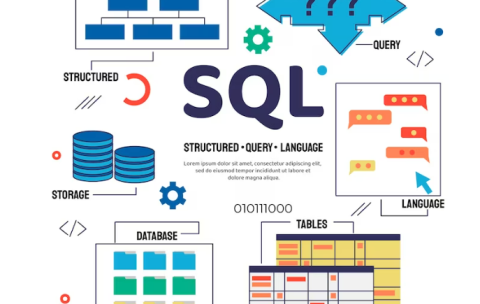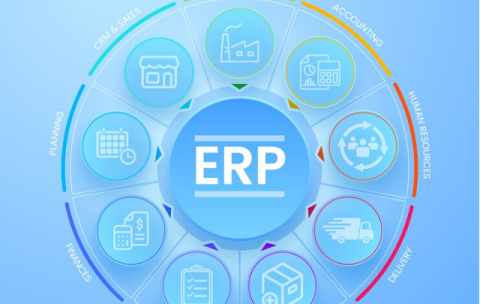Database Management and SQL – Structured Data Mastery: SQL & Beyond
“Database Management and SQL – Structured Data Mastery: SQL & …
What you'll learn
Week 1: Introduction to Databases and SQL (4 Hours)
Session 1 (2 Hours): Fundamentals of Database Systems
Overview of Database Management Systems (DBMS)
Types of Databases: Relational vs. Non-Relational
Basic Database Terminology and Concepts
Session 2 (2 Hours): Introduction to SQL
Understanding SQL and its Role in Databases
Basic SQL Syntax and Commands
Setting Up a SQL Environment (e.g., MySQL, PostgreSQL)
Week 2: SQL for Data Retrieval (6 Hours)
Session 3 (2 Hours): Basic SQL Queries
SELECT Statements, WHERE Clauses
Working with Columns and Rows
Sorting and Filtering Data
Session 4 (2 Hours): Advanced Data Retrieval
JOIN Operations: Combining Data from Multiple Tables
Aggregating Data with GROUP BY and HAVING Clauses
Subqueries and Nested Queries
Session 5 (2 Hours): Practical SQL Exercises
Hands-on SQL Query Exercises
Case Studies on Data Retrieval in Business Scenarios
Week 3: Database Design and Data Manipulation (6 Hours)
Session 6 (2 Hours): Database Design Principles
Understanding Data Modeling and Entity-Relationship Diagrams
Normalization and Database Schemas
Creating Tables and Setting Primary/Foreign Keys
Session 7 (2 Hours): SQL for Data Manipulation and Management
INSERT, UPDATE, and DELETE Operations
Data Integrity and Transactions
Basics of Stored Procedures and Functions
Session 8 (2 Hours): Working with Real-World Data
Importing and Exporting Data
SQL for Business Analytics and Reporting
Integrating SQL Queries with Business Intelligence Tools
Week 4: Advanced Topics and Practical Applications (4 Hours)
Session 9 (2 Hours): Advanced SQL and Performance Optimization
Advanced SQL Features (e.g., Window Functions, Indexing)
Query Optimization Techniques
Understanding SQL Execution Plans
Session 10 (2 Hours): Capstone Project and Course Wrap-Up
Applying SQL Skills to a Real Business Case
Group Project Presentations
Course Summary and Further Learning Resources
This course would ideally mix theoretical lectures with practical exercises and case studies. Each session should include hands-on SQL practice, progressively building in complexity. The final capstone project should involve a comprehensive business-related database task, requiring students to apply all the skills learned throughout the course. This structure ensures that MBA students not only understand the technical aspects of SQL and database management but also how to apply these skills in a business context.
Digital Marketing Analytics – Metrics to Strategy: Mastering Online Impact
“Digital Marketing Analytics – Metrics to Strategy: Mastering Online Impact” …
What you'll learn
Week 1: Introduction to Digital Marketing and Analytics (4 Hours)
Session 1 (2 Hours): Fundamentals of Digital Marketing
Overview of Digital Marketing Landscape
Key Digital Marketing Channels (SEO, PPC, Social Media, Email Marketing)
Introduction to Digital Marketing Strategy
Session 2 (2 Hours): Basics of Digital Marketing Analytics
Role of Analytics in Digital Marketing
Understanding Key Metrics and KPIs
Introduction to Analytics Tools (e.g., Google Analytics)
Week 2: Analytics Tools and Techniques (6 Hours)
Session 3 (2 Hours): Web Analytics
In-depth Exploration of Google Analytics
Tracking Website Traffic and User Behavior
Analyzing and Interpreting Web Data
Session 4 (2 Hours): Social Media Analytics
Overview of Social Media Analytics Tools
Measuring Engagement and Performance on Different Platforms
Case Studies in Social Media Analytics
Session 5 (2 Hours): SEO and Content Analytics
SEO Tools and Techniques for Analysis
Content Performance Metrics and Analysis
Integrating SEO and Content Strategy with Overall Digital Marketing
Week 3: Advanced Analytics and Data-Driven Strategies (6 Hours)
Session 6 (2 Hours): Email Marketing and CRM Analytics
Analyzing Email Marketing Campaigns
Integrating CRM Data for Enhanced Insights
Personalization and Segmentation Strategies
Session 7 (2 Hours): PPC and Paid Media Analytics
Analyzing and Optimizing PPC Campaigns
Understanding Attribution Models in Paid Media
Budget Allocation and ROI Calculation
Session 8 (2 Hours): Data Visualization and Reporting
Tools for Creating Marketing Dashboards (e.g., Tableau, Power BI)
Visualizing Marketing Data for Insights
Preparing and Presenting Marketing Reports
Week 4: Practical Application and Capstone Project (4 Hours)
Session 9 (2 Hours): Integrating Digital Marketing Analytics into Business Strategy
Developing Data-Driven Marketing Strategies
Case Studies of Successful Digital Marketing Campaigns
Discussion on Ethical Considerations in Digital Marketing
Session 10 (2 Hours): Capstone Project and Course Wrap-Up
Group Project: Creating a Digital Marketing Analytics Strategy for a Real-World Business Scenario
Project Presentations and Feedback
Course Summary and Future Learning Pathways
This course would ideally blend theoretical instruction with practical, hands-on exercises using real-life case studies and analytics tools. The capstone project should be a comprehensive exercise where students apply analytics concepts to develop a digital marketing strategy for a business case, providing practical experience in utilizing analytics for strategic decision-making. This structure ensures that MBA students gain not only technical skills in digital marketing analytics but also understand how to apply these insights in a broader business context.
Enterprise Resource Planning (ERP) Systems – Integrating Efficiency with ERP System Expertise
Enterprise Resource Planning (ERP) Systems – Integrating Efficiency with ERP …
What you'll learn
Week 1: Introduction to ERP Systems (4 Hours)
Session 1 (2 Hours): Fundamentals of ERP Systems
Overview of ERP Systems and Their Evolution
Key Components and Architecture of ERP Systems
Role and Benefits of ERP in Business Integration
Session 2 (2 Hours): Types of ERP Systems and Vendors
Overview of Major ERP Systems (e.g., SAP, Oracle, Microsoft Dynamics)
Cloud-based vs. On-premises ERP Solutions
Selecting an ERP System: Factors to Consider
Week 2: ERP Implementation and Modules (6 Hours)
Session 3 (2 Hours): ERP Implementation Process
Steps in ERP Implementation
Project Planning and Management for ERP Implementation
Risk Management in ERP Projects
Session 4 (2 Hours): Functional Modules of ERP Systems
In-depth Look at Key ERP Modules (Finance, HR, Supply Chain, etc.)
Integration of ERP Modules in Business Processes
Hands-on Exercise with a Simulated ERP Environment
Session 5 (2 Hours): ERP System Customization and Configuration
Customization vs. Configuration in ERP Systems
Best Practices in ERP System Customization
Case Studies on Successful ERP Customizations
Week 3: ERP and Business Process Integration (6 Hours)
Session 6 (2 Hours): Business Process Reengineering and ERP
Understanding Business Process Reengineering (BPR)
Aligning ERP Systems with Business Processes
Impact of ERP on Organizational Structure and Culture
Session 7 (2 Hours): ERP System Upgrades and Maintenance
Managing ERP System Upgrades
Routine Maintenance and Support for ERP Systems
Training and User Support Strategies
Session 8 (2 Hours): Data Management and Analytics in ERP
Role of ERP in Data Management and Business Intelligence
Leveraging ERP Data for Analytics and Decision Making
Case Study on ERP-Enabled Business Analytics
Week 4: Advanced Topics and Emerging Trends (4 Hours)
Session 9 (2 Hours): Emerging Trends in ERP
ERP in the Era of Big Data and IoT
Mobile ERP and Cloud Computing Trends
Future Outlook of ERP Systems
Session 10 (2 Hours): Capstone Project and Course Wrap-Up
Group Project on ERP Implementation Strategy
Presentations and Discussions on ERP Case Studies
Course Summary and Discussion on Further Learning Opportunities
The course would ideally blend theoretical insights with practical, hands-on exercises, possibly using an ERP simulation tool or case studies. The final capstone project should involve applying ERP concepts to a real-world business scenario, encouraging students to think strategically about the use of ERP systems in an organizational context. This structure ensures that MBA students gain a comprehensive understanding of ERP systems, their implementation challenges, and their strategic value in business operations.
Excel Data Analysis and Visualization – Transforming Data into Visual Stories with Excel
“Excel Data Analysis and Visualization – Transforming Data into Visual …
What you'll learn
Week 1: Advanced Excel for Data Analysis (4 Hours)
Session 1 (2 Hours): Excel Refresher and Introduction to Advanced Features
Quick Review of Basic Excel Functions
Introduction to Advanced Data Functions and Formulas
Managing and Organizing Data in Excel
Session 2 (2 Hours): Data Analysis Techniques in Excel
Data Validation and Conditional Formatting
Advanced Data Analysis with PivotTables and PivotCharts
Introduction to Excel's Data Analysis ToolPak
Week 2: Data Visualization in Excel (6 Hours)
Session 3 (2 Hours): Creating Basic Charts and Graphs
Types of Charts in Excel and When to Use Them
Customizing Charts and Graphs
Best Practices in Data Visualization
Session 4 (2 Hours): Advanced Charting Techniques
Advanced Chart Types (e.g., Waterfall, Sunburst, Histogram)
Dynamic and Interactive Charts
Using Sparklines and Conditional Formatting for Visualization
Session 5 (2 Hours): Dashboard Creation in Excel
Principles of Dashboard Design
Integrating Multiple Data Sources into a Dashboard
Interactive Elements in Dashboards (e.g., Slicers, Form Controls)
Week 3: Advanced Data Manipulation and Analysis (6 Hours)
Session 6 (2 Hours): Utilizing Advanced Excel Functions
Exploring Advanced Functions (e.g., INDEX, MATCH, OFFSET)
Introduction to Array Formulas
Text and Date Functions for Data Preparation
Session 7 (2 Hours): Introduction to Macros and VBA
Basics of Excel Macros for Automation
Introduction to VBA (Visual Basic for Applications)
Simple VBA Scripts for Data Analysis
Session 8 (2 Hours): Solving Real-World Business Problems
Applying Excel Skills to Business Case Studies
Data Analysis Techniques in Real-World Scenarios
Group Exercise on Business Data Analysis
Week 4: Integrating Excel with Other Tools and Capstone Project (4 Hours)
Session 9 (2 Hours): Excel Integration with External Data Sources
Importing and Exporting Data from/to Different Formats
Connecting Excel with Databases and Web Data
Excel and Power BI Integration Basics
Session 10 (2 Hours): Capstone Project and Course Wrap-Up
Final Project: Creating a Comprehensive Business Analysis Report using Excel
Presentation of Capstone Projects
Course Summary and Pathways for Further Learning
Each session should include a mix of theoretical instruction and hands-on exercises, progressively building in complexity. The capstone project should involve a comprehensive task that requires students to apply all the skills they've learned, ideally focusing on a real-world business scenario. This structure ensures that MBA students not only gain technical proficiency in Excel for data analysis and visualization but also understand how to apply these skills in a business context.
Financial Modeling and Valuation – Crafting Financial Blueprints and Value Assessments
Financial Modeling and Valuation – Crafting Financial Blueprints and Value …
What you'll learn
Week 1: Introduction to Financial Modeling (4 Hours)
Session 1 (2 Hours): Basics of Financial Modeling
Introduction to Financial Modeling: Concepts and Applications
Overview of Financial Statements (Income Statement, Balance Sheet, Cash Flow Statement)
Building a Basic Financial Model in Excel
Session 2 (2 Hours): Best Practices in Financial Modeling
Spreadsheet Design and Best Practices
Ensuring Accuracy and Integrity in Financial Models
Basic Excel Functions and Tools for Financial Modeling
Week 2: Advanced Financial Modeling Techniques (6 Hours)
Session 3 (2 Hours): Cash Flow Projections and Forecasting
Techniques for Projecting Income Statement and Balance Sheet
Building a Cash Flow Statement from Projections
Sensitivity Analysis and Scenario Building
Session 4 (2 Hours): Advanced Excel Techniques for Financial Modeling
Advanced Functions and Formulas in Excel
Data Validation, What-If Analysis, and Goal Seek
Introduction to Macros and VBA for Automation
Session 5 (2 Hours): Financial Modeling for Decision Making
Case Studies: Financial Modeling in Mergers and Acquisitions, Project Finance, and Valuation
Analyzing Financial Models for Strategic Decisions
Week 3: Valuation Techniques and Applications (6 Hours)
Session 6 (2 Hours): Introduction to Valuation Methods
Overview of Valuation Techniques: DCF, Comparables, Precedent Transactions
Discounted Cash Flow (DCF) Valuation Model
Cost of Capital: WACC and CAPM
Session 7 (2 Hours): Comparable Company Analysis (CCA) and Precedent Transactions
Performing a Comparable Company Analysis
Precedent Transaction Analysis: Methodology and Application
Case Study: Valuation using CCA and Precedent Transactions
Session 8 (2 Hours): Real-world Valuation Challenges
Dealing with Uncertainty and Risk in Valuation
Valuation of Startups and Non-traditional Companies
Impact of Economic and Market Conditions on Valuation
Week 4: Practical Application and Capstone Project (4 Hours)
Session 9 (2 Hours): Integrating Financial Modeling and Valuation into Business Strategy
Strategic Implications of Financial Models and Valuations
Communicating Results: Making Effective Financial Presentations
Ethical Considerations in Financial Modeling and Valuation
Session 10 (2 Hours): Capstone Project and Course Wrap-Up
Group Project: Developing a Comprehensive Financial Model and Valuation for a Real or Simulated Company
Presentation of Capstone Projects
Course Summary and Pathways for Further Learning
Each session should include a mix of theoretical instruction, case studies, and hands-on exercises, primarily in Excel. The capstone project in the final week would involve applying all the learned concepts to a comprehensive financial modeling and valuation exercise, providing practical experience in the application of these skills. This structure ensures that MBA students not only acquire technical financial modeling and valuation skills but also understand how to apply these skills in real-world business scenarios.
Google Data Studio – Insights at a Glance with Google Data Studio
Google Data Studio – Insights at a Glance with Google …
What you'll learn
Week 1: Introduction to Google Data Studio and Data Visualization (4 Hours)
Session 1 (2 Hours): Fundamentals of Google Data Studio
Introduction to Business Intelligence and Data Visualization
Overview of Google Data Studio: Features and Capabilities
Setting Up and Navigating Google Data Studio
Session 2 (2 Hours): Connecting to Data Sources
Integrating Various Data Sources (Google Sheets, Analytics, SQL databases)
Understanding Data Source Fields and Data Types
Basic Data Transformations and Preparations
Week 2: Building Reports and Visualizations (6 Hours)
Session 3 (2 Hours): Creating Basic Reports and Charts
Designing Reports with Tables, Scorecards, and Basic Charts
Customizing Data Visualization Elements
Best Practices in Report Layout and Design
Session 4 (2 Hours): Advanced Visualization Techniques
Exploring Advanced Chart Types (e.g., Geo Maps, Scatter Charts)
Using Filters and Date Range Controls
Interactive Features in Reports (e.g., Drill Downs)
Session 5 (2 Hours): Enhancing Reports with Styling and Branding
Advanced Styling Options for Professional-Looking Reports
Adding Branding Elements and Custom Themes
Conditional Formatting for Enhanced Data Presentation
Week 3: Advanced Features and Business Applications (6 Hours)
Session 6 (2 Hours): Advanced Data Studio Features
Using Calculated Fields and Custom Formulas
Introduction to Blended Data and Data Joining
Implementing Row-Level Security and Access Controls
Session 7 (2 Hours): Data Exploration and Insights
Exploring Data with Explorer Mode
Using Data Studio for Business Analytics and Insights
Case Studies: Real-World Business Applications
Session 8 (2 Hours): Collaborating and Sharing in Data Studio
Collaborative Features in Google Data Studio
Sharing and Embedding Reports
Best Practices for Managing and Organizing Reports
Week 4: Practical Application and Capstone Project (4 Hours)
Session 9 (2 Hours): Integrating Google Data Studio in Business Strategy
Developing Data-Driven Business Strategies Using Reports
Discussing Ethical Considerations in Data Reporting
Strategies for Effective Data Storytelling in Business
Session 10 (2 Hours): Capstone Project and Course Wrap-Up
Developing a Comprehensive Business Intelligence Dashboard for a Real or Simulated Business Scenario
Presentation of Capstone Projects
Course Summary and Pathways for Further Learning
The course should include a mix of lectures, hands-on exercises, and case studies, with a strong emphasis on practical application using real-world business scenarios. The capstone project in the final week should involve creating a comprehensive business intelligence dashboard, allowing students to apply their learning in a realistic business context. This structure ensures MBA students not only acquire technical skills in Google Data Studio but also understand how to strategically apply these skills for business analysis and decision-making.
Data Analytics and Statistical Analysis for MBA – From Data to Decisions: Advanced Statistical Techniques for MBAs
“Data Analytics and Statistical Analysis for MBA – From Data …
What you'll learn
Week 1: Introduction to Data Analytics and Basic Statistics (4 Hours)
Session 1 (2 Hours): Introduction to Data Analytics
Overview of Data Analytics in Business
Role of Data Analytics in Decision-Making
Introduction to Statistical Concepts
Session 2 (2 Hours): Basics of Descriptive Statistics
Measures of Central Tendency (Mean, Median, Mode)
Measures of Variability (Range, Variance, Standard Deviation)
Data Visualization Basics (Histograms, Box Plots)
Week 2: Exploratory Data Analysis and Inferential Statistics (6 Hours)
Session 3 (2 Hours): Exploratory Data Analysis (EDA)
EDA Techniques
Understanding Data Distributions
Introduction to Statistical Software (e.g., R, Python)
Session 4 (2 Hours): Probability and Probability Distributions
Basic Probability Concepts
Discrete and Continuous Distributions (e.g., Binomial, Normal)
Session 5 (2 Hours): Basics of Inferential Statistics
Sampling and Estimation
Hypothesis Testing Concepts
Introduction to Regression Analysis
Week 3: Advanced Statistical Techniques (6 Hours)
Session 6 (2 Hours): Linear Regression Analysis
Simple and Multiple Linear Regression
Interpreting Regression Output
Assumptions and Diagnostics in Regression
Session 7 (2 Hours): Time Series Analysis and Forecasting
Components of Time Series Data
Moving Averages, Smoothing Techniques
Introduction to ARIMA Models
Session 8 (2 Hours): Decision Trees and Clustering
Basics of Classification and Clustering
Introduction to Decision Trees
Basics of K-Means Clustering
Week 4: Application of Data Analytics in Business (4 Hours)
Session 9 (2 Hours): Data Analytics in Finance and Marketing
Case Studies in Financial Analytics
Market Analysis and Consumer Behavior Studies
Session 10 (2 Hours): Capstone Project and Course Wrap-up
Application of Learned Techniques to a Business Case
Group Project Presentation
Course Summary and Path Forward for Further Learning
Each session would ideally include a mix of lecture, discussion, and hands-on exercises using statistical software. The capstone project in the final session should be a comprehensive task that requires students to apply all the skills they've learned, ideally focusing on a real-world business scenario. This structure ensures that MBA students not only understand the theoretical underpinnings of statistical analysis but also how to apply these techniques in a business context.
Promoting Ethical and Sustainable Business Practices in Research and Insight
This course is designed to provide participants with a comprehensive …
What you'll learn
Define ethical research practices and understand their significance in the business context.
Explore the principles of sustainable business and their role in responsible decision-making.
Learn how to conduct research with integrity, including data collection, analysis, and reporting.
Understand the ethical considerations related to participant consent, privacy, and confidentiality.
Gain insights into the social and environmental impact assessment in business research.
Analyze case studies of ethical and sustainable research practices in various industries.
Discuss the challenges and dilemmas faced by researchers in maintaining ethical standards.
Explore emerging trends and tools for ethical and sustainable research and insight.
Formulate strategies for integrating ethical and sustainable practices into business research.
Identify the potential benefits and long-term advantages of ethical and sustainable business practices.










